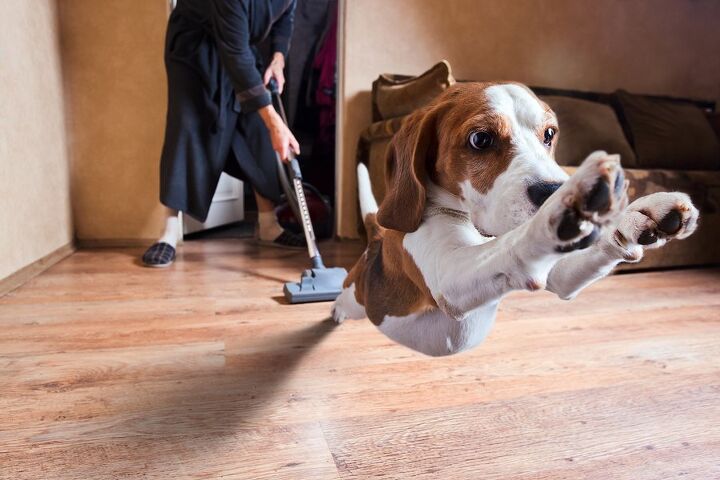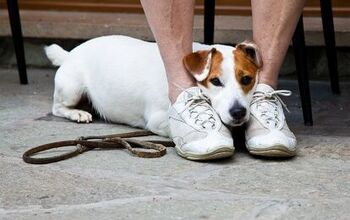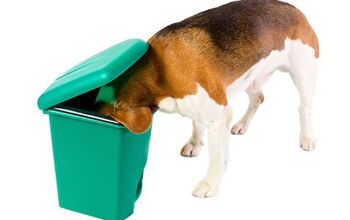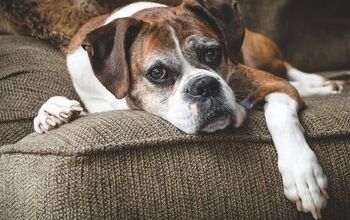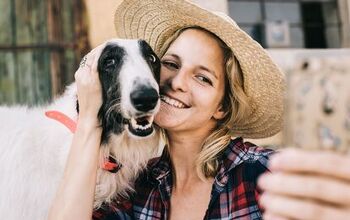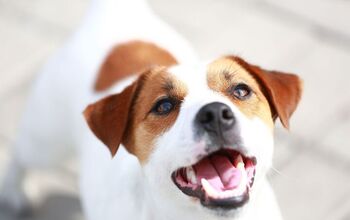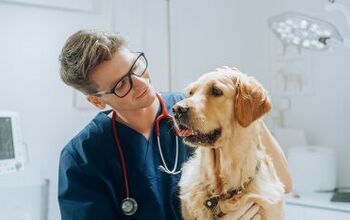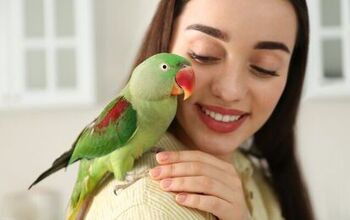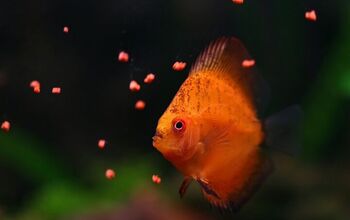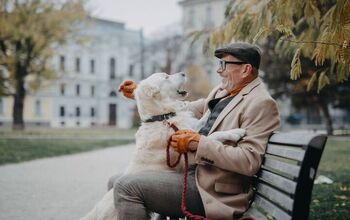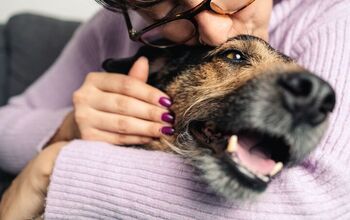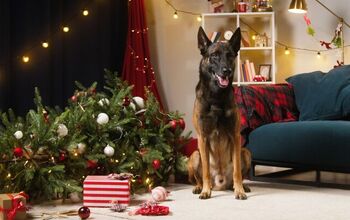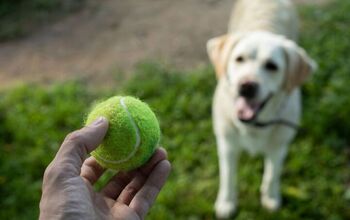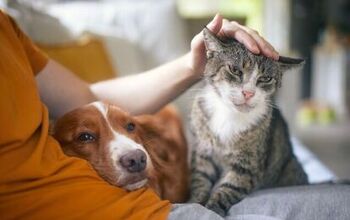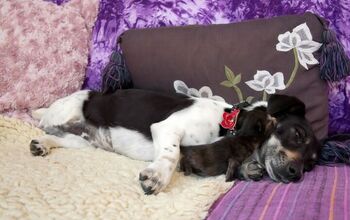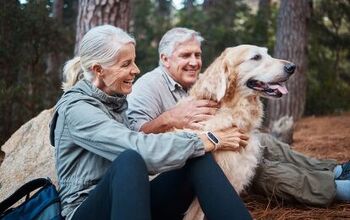Why Are Dogs Afraid of Vacuums?

You are undoubtedly familiar with the term “scaredy cat,” but some dogs can be just as easily frightened as the most skittish cat …especially when the vacuum cleaner comes out. Some dogs get a little bit nervous around the vacuum while others are completely terrified and will do anything they can to escape. If your dog is afraid of the vacuum, take a few minutes to learn the reason behind his fear and then implement some simple steps to deal with the problem.
Why are Dogs Afraid of Vacuums
There are many times when your dog becomes frightened of something that you know to be completely innocuous, but your dog simply cannot be convinced. For many dogs, the vacuum is one of the most frightening things in the house. Some dog owners find this amusing simply because it seems so absurd, but you should take your dog’s fears seriously. The first step is to learn why your dog is afraid of the vacuum – then you can learn how to work with or through your dog’s fear.
Related: 5 Zen Ways To Manage Dog Stress
One of the main reasons dogs are afraid of vacuums is the noise. Dogs have a keen sense of hearing, so if the vacuum seems loud to you, it is much worse for your dog. Not only do vacuums produce a lot of noise, but they also produce high-frequency sounds that can frighten or annoy your dog. Some dogs also have a problem with the suddenness of the noise – the vacuum goes from silent to noisy in an instant.
Another potential cause of fear for your dog is the smells the vacuum kicks up as you clean. In addition to having an intense sense of hearing, dogs also have an acute sense of smell. The vacuum lifts dirt and debris from deep in the carpet, kicking up odors as it goes along. This can result in sensory overload for your dog, especially if it has been a while since you last vacuumed. It is also possible that your dog is alarmed by the suction of the vacuum – when your dog sniffs the vacuum, the vacuum sniffs back but at a much greater strength.
Related: Study Finds That Classical Music Calms Kennel Dogs
How to Vacuum Without Scaring Your Dog
One of the best things you can do to prevent your dog from becoming afraid of the vacuum is to expose him to it at an early age. Socialization for puppies is all about new experiences; if your puppy isn’t properly socialized, he will respond to new things with caution or fear as an adult. If your dog is already an adult, however, you may not have this option available. Exposing your dog to the vacuum in small increments may work, especially if you give your dog treats when the vacuum is around so he learns that it isn’t something to fear.
This is called desensitization: you slowly work with your dog to change his fearful response into a positive response by not only getting him used to the vacuum but by rewarding him for having a positive response. One way to do this is to have a friend or family member run the vacuum in another room while you play with and pet your dog. Have your friend move the vacuum slowly closer while you keep rewarding your dog with treats, encouraging him to stay where he is as the vacuum approaches. You may not be able to do this all at once, but short sessions with plenty of repetition and reward will eventually teach your dog not to fear the vacuum.
If you stopped doing all of the things that made your dog nervous or frightened, the list of things left would be abbreviated. Rather than letting your home become a mess of dirt and debris, implement the steps listed above to get your dog used to the vacuum so he doesn’t run for cover every time it comes out of the closet.

Kate Barrington is the loving owner of two cats (Bagel and Munchkin) and a noisy herd of guinea pigs. Having grown up with golden retrievers, Kate has a great deal of experience with dogs but labels herself a lover of all pets. Having received a Bachelor's degree in English, Kate has combined her love for pets and her passion for writing to create her own freelance writing business, specializing in the pet niche.
More by Kate Barrington



